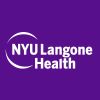The Cardiologist’s Role in Preventing Heart Disease: A Comprehensive Overview
- Understanding Heart Disease
- How Cardiologists Help Prevent Heart Disease
- Identifying Heart Disease Risk Factors
- Effective Prevention Strategies from Cardiologists
- Real-Life Stories: How Cardiologists Prevented Heart Disease
Understanding Heart Disease
Heart disease, often referred to as cardiovascular disease, includes various conditions that affect the heart and blood vessels. It remains the leading cause of death globally, and the statistics are particularly alarming in the United States. The primary conditions under the heart disease umbrella include coronary artery disease (the most common), heart attacks, heart failure, and arrhythmias. Understanding these diseases is essential, especially as they often develop silently, showing few symptoms in their early stages.
For many years, I associated heart disease with the elderly. However, as I began learning more, I realized that heart disease affects individuals of all ages, with many risk factors being preventable or manageable. This realization highlighted the importance of heart disease prevention, particularly in the context of lifestyle changes, medical care, and early intervention. A cardiologist is central to this prevention process, as they specialize in diagnosing, treating, and advising on heart-related conditions.

How Cardiologists Help Prevent Heart Disease
Cardiologists are specialized doctors who focus on heart health, and they play a pivotal role in preventing heart disease. When you visit a cardiologist, they can provide a thorough evaluation of your heart health and identify early signs of potential issues. This proactive approach allows them to provide tailored advice, medical treatment, and lifestyle changes to reduce the risk of heart disease.
For example, during a routine check-up, a cardiologist will assess factors like your cholesterol levels, blood pressure, and family history of heart disease. With this information, they can create a comprehensive plan that includes medication, lifestyle changes, and regular monitoring. I remember when I first went to see a cardiologist for a routine check-up. The doctor explained my cholesterol levels and the steps I could take to reduce my risk, which not only put my mind at ease but also gave me actionable steps to take control of my health.
Cardiologists are instrumental in detecting heart disease early. Early detection is crucial because the earlier a problem is identified, the sooner a cardiologist can help prevent it from worsening. Cardiologists use advanced diagnostic tools like stress tests, electrocardiograms (EKG), and echocardiograms to monitor heart function and identify issues before they become life-threatening.
Atlanta Heart Specialists
atlanta heart specialists
4375 Johns Creek Pkwy #350, Suwanee, GA 30024, USA

Identifying Heart Disease Risk Factors
There are many risk factors that contribute to heart disease, and cardiologists are experts at identifying and addressing these factors. During a visit, a cardiologist will evaluate several key risk factors, some of which may be modifiable and others that are genetic. These include:
- High Blood Pressure: Known as the "silent killer," high blood pressure is one of the leading causes of heart disease. Regular monitoring and medication prescribed by a cardiologist can help manage this risk factor.
- High Cholesterol: Elevated levels of LDL cholesterol (bad cholesterol) can lead to plaque buildup in the arteries. Cardiologists help manage cholesterol through diet, lifestyle changes, and medications like statins.
- Diabetes: People with diabetes have an increased risk of heart disease. Cardiologists help patients manage blood sugar levels to reduce their risk.
- Smoking: Smoking significantly raises the risk of heart disease. Cardiologists often offer guidance on quitting smoking and provide resources to help patients succeed.
- Family History: A family history of heart disease can increase your risk. Cardiologists can work with you to develop a personalized prevention plan.
Understanding these risk factors is key to managing your heart health. My personal experience with high cholesterol taught me the importance of regular check-ups. My cardiologist helped me understand how simple changes in my diet and exercise routine could make a significant difference, allowing me to lower my cholesterol levels and reduce my risk of heart disease.
Effective Prevention Strategies from Cardiologists
Cardiologists play a critical role in preventing heart disease by offering a combination of medical guidance, lifestyle changes, and preventive care. Some of the most effective strategies they recommend include:
- Dietary Changes: Cardiologists often recommend a heart-healthy diet, such as the Mediterranean or DASH diet, which emphasizes fruits, vegetables, whole grains, and healthy fats. I found that incorporating more plant-based foods into my meals significantly improved my energy and overall well-being.
- Regular Exercise: Exercise is a cornerstone of heart disease prevention. Cardiologists recommend at least 150 minutes of moderate aerobic activity per week to help strengthen the heart. Personally, regular exercise has had a profound effect on my heart health and overall fitness.
- Medication: For patients with high blood pressure, high cholesterol, or diabetes, cardiologists may prescribe medications to manage these conditions. I have benefited from medications that help regulate my cholesterol, and my cardiologist continues to monitor my progress with regular check-ups.
- Stress Management: Chronic stress is a risk factor for heart disease, and cardiologists often recommend techniques such as yoga, meditation, and mindfulness to manage stress effectively.
Following these prevention strategies can greatly reduce the risk of heart disease. I’ve personally found that small, consistent changes in my daily routine have had a significant impact on my heart health, and my cardiologist has been instrumental in helping me implement these changes.
Real-Life Stories: How Cardiologists Prevented Heart Disease
Real-life stories of patients who worked with cardiologists to prevent heart disease are inspiring. One such story is about Sarah, a woman in her 50s who was diagnosed with high cholesterol. She had a family history of heart disease and was concerned about her risk. After working closely with her cardiologist, Sarah made several lifestyle changes, including improving her diet, exercising more regularly, and taking prescribed medications. Over time, her cholesterol levels dropped, and she significantly reduced her risk of heart disease.
Sarah’s story is just one example of how cardiologists can make a huge difference in preventing heart disease. By providing guidance on healthy lifestyle changes and using medication when necessary, cardiologists empower patients to take control of their heart health. These stories remind us that heart disease doesn’t have to be inevitable—through proactive care and lifestyle adjustments, it’s possible to live a heart-healthy life.





















Deborah Heart and Lung Center
deborah heart and lung center
200 Trenton Rd, Browns Mills, NJ 08015, USA